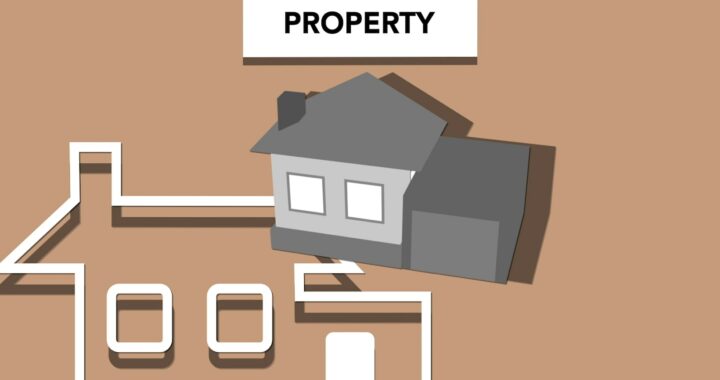
The Worst Way – How to Invest in Real Estate with Bad Credit
How to Invest in Real Estate with Bad Credit
Investing in real estate can be a lucrative endeavor, but what if you have bad credit? Many individuals find themselves in this predicament, wondering if there’s a way to still enter the real estate market despite their financial setbacks. In this article, I’ll explore the worst way to invest in real estate with bad credit and why it’s important to avoid it at all costs.
The worst way to invest in real estate with bad credit is by resorting to predatory lending practices. These are often offered by unscrupulous lenders who target individuals with poor credit scores and offer them loans with exorbitant interest rates and unfavorable terms. While it might seem like a quick solution to get your foot in the door of the real estate market, these predatory loans can quickly turn into a financial nightmare.
Not only do these loans come with sky-high interest rates that can eat away at your profits, but they also often have hidden fees and penalties that can trap you in an endless cycle of debt. Additionally, taking on such high-risk loans without proper evaluation of your financial situation and ability to repay can lead to foreclosure or bankruptcy. It’s crucial to recognize that investing in real estate requires careful planning and consideration, especially when dealing with bad credit.
Remember, there are alternative ways to invest in real estate even if you have bad credit. From partnering with someone who has good credit or seeking out creative financing options, exploring other avenues will provide better long-term solutions than succumbing to predatory lending practices. By avoiding the worst way of investing with bad credit, you’ll protect yourself from unnecessary financial hardship and set yourself up for success in the world of real estate investment.
Investing in real estate with bad credit can be a challenging endeavor, and it’s important to understand the risks involved. In this section, we’ll explore the potential pitfalls that come with this type of investment strategy.
- Limited Financing Options: One of the primary risks of investing in real estate with bad credit is limited access to financing. Traditional lenders such as banks and mortgage companies are often hesitant to lend money to individuals with poor credit scores. This means you may have to rely on alternative financing options, such as hard money loans or private investors, which often come with higher interest rates and stricter terms.
- Higher Interest Rates: Even if you do manage to secure financing for your real estate investment with bad credit, you’re likely to face higher interest rates compared to borrowers with good credit. These elevated interest rates can significantly impact your overall profitability by increasing your monthly mortgage payments and reducing your cash flow.
- Difficulty in Obtaining Favorable Loan Terms: When you have bad credit, lenders may also impose restrictive loan terms on your real estate investment. For example, they might require larger down payments or shorter repayment periods, making it harder for you to generate positive returns on your investment.
- Limited Investment Opportunities: Investing in real estate typically requires a certain level of financial stability and credibility. With bad credit, you may find it difficult to access lucrative investment opportunities such as buying properties at foreclosure auctions or securing favorable deals from motivated sellers who prefer buyers with stronger financial backgrounds.
- Impact on Future Financing Options: Investing in real estate with bad credit can have long-term consequences for your future borrowing capacity. If your investments don’t perform well or if you default on any loans obtained for these investments, it could further damage your credit score and make it even harder to obtain financing for future ventures.

Alternative Financing Options for Real Estate Investment
When it comes to investing in real estate with bad credit, traditional financing options may not be readily available. However, there are alternative financing options that can help you overcome this hurdle and still pursue your real estate investment goals. Here are a few options to consider:
- Private Lenders: Private lenders are individuals or companies that provide loans directly to borrowers without involving traditional banks or financial institutions. These lenders often have more flexible lending criteria and may be willing to work with investors who have less-than-perfect credit scores.
- Hard Money Loans: Hard money loans are short-term, asset-based loans that are secured by the property itself rather than the borrower’s creditworthiness. These loans typically have higher interest rates and fees compared to traditional mortgages but can be a viable option for investors looking to secure quick funding for their real estate ventures.
- Seller Financing: In some cases, sellers may be open to financing the purchase of their property themselves. This arrangement allows investors with bad credit to negotiate terms directly with the seller, potentially avoiding the need for bank financing altogether.
- Joint Venture Partnerships: Another option is partnering with someone who has better credit and financial resources. By entering into a joint venture partnership, you can leverage their credibility while bringing your expertise and knowledge of the real estate market to the table.
- Lease Option or Rent-to-Own: A lease option or rent-to-own agreement allows you to rent a property with an option to buy it at a predetermined price within a specified timeframe. This gives you time to improve your credit while building equity in the property.





